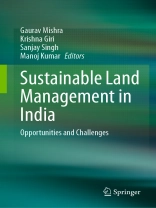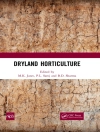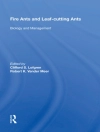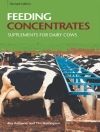This edited book addresses various aspects of sustainable land management, including existing policy norms and indigenous knowledge. It focuses on how sustainable land management can combat desertification, increase livelihood opportunities, mitigate poverty and hunger, and conserve biodiversity. The book explores different sustainable land management practices and policy frameworks in India aimed at achieving land degradation neutrality. Sustainable land management (SLM) encompasses Nature-based Solutions for restoring degraded landscapes, mitigating and adapting to climate change, ensuring water and food security, alleviating poverty, promoting economic growth, and conserving biodiversity.
This book is suitable for academicians, researchers, and policymakers involved in developing roadmaps and policies to achieve the 2030 Agenda for Sustainable Development.
Table of Content
.- Chapter 1_Sustainable Land Management: Opportunities and Challenges.
.- Chapter 2_Land Degradation and Desertification: Causes, Mechanism, and Biological Management.
.- Chapter 3_Land Degradation and Floristic Diversity: An Interplay of Environmental Dynamics.
.- Chapter 4_Forest Fire-Induced Land Degradation.
.- Chapter 5_India’s policy efforts to combat desertification, land degradation, and drought.
.- Chapter 6_Promotion of Multipurpose Tree Species Cultivation for Improving Livelihood Security in the Drought Vulnerable Ecosystems.
.- Chapter 7_Biomass and Carbon Stock in Protected Areas Across Northwest Himalaya: An Optimal Sustainable Forest Land Management Strategy to Amplify Carbon Sequestration Potential.
.- Chapter 8_Fallow jhum land management through integrated approaches with particular reference to Northeast India.
.- Chapter 9_Seed Ball Technology- Facets and prospects for restoration of degraded lands.
.- Chapter 10_Role of Traditional Farming Practices of North East India in Soil and Water Conservation and Sustainable Nutrient Management.
.- Chapter 11_Impact of Traditional Land Management Practices on Soil Fertility and Crop Productivity.
.- Chapter 12_Geospatial technique for land degradation vulnerability mapping in the hot arid agro-ecosystem of India.
.- Chapter 13_Assessing Soil Erosion Vulnerability Region of Dihing Watershed Using Multi-Criteria Decision Method (MCDM) in Combination with Remote Sensing and GIS Techniques.
.- Chapter 14_Sustainable land management practices for healthy ecosystem services: A cornerstone of biodiversity sustenance in the Indian northwestern Himalaya.
.- Chapter 15_Removing Heavy Metals from Polluted Soil via Phytoremediation: An Integrated and Sustainable Method.
About the author
Gaurav Mishra
Gaurav Mishra, is working as a Scientist in the Centre of Excellence on Sustainable Land Management at the Indian Council of Forestry Research and Education, Dehradun (Uttarakhand), India. He has over 10 years of research experience in soil quality assessment, soil carbon dynamics, and carbon modeling at the regional level. He has more than 70 scientific, technical, and educational publications and has presented papers at national/international conferences. Dr. Mishra is serving as the Editorial Board member of Anthropocene Science Journal.
Krishna Giri
Krishna Giri is working as a Scientist at the Indian Council of Forestry Research and Education, Dehradun, India, and did M. Sc. and Ph.D. in Environmental Science from G.B. Pant University of Agriculture and Technology, Pantnagar in the year 2010 and 2013, respectively. He has published about 50 research papers in peer-reviewed scientific journals of National and International repute and also contributed papers to National and International seminars, symposiums, and workshops. Besides, he has contributed 13 book chapters on the topical issues of soil microbiology.
Sanjay Singh,
Sanjay Singh has completed his Ph. D. from Garhwal University, Srinagar in Botany discipline. He is working as a scientist in Center of Excellence, Indian Council of Forestry Research and Education. He has over 11 years of experience in the field of Biodiversity Conservation and Ecology. He has worked extensively in the biodiversity rich tribal areas of Central India. He has more than 40 scientific, technical, and educational publications and has presented papers at national/international conferences.
Manoj Kumar
Manoj Kumar is working as scientist at the Indian Council of Forestry Research and Education, Dehradun, India. He is working in the field of forestry, environment and climate change, with wider applications of Remote Sensing and GIS. He is having working experience of more than 15 years and has successfully implemented more than 20 research projects funded by national and international agencies.












